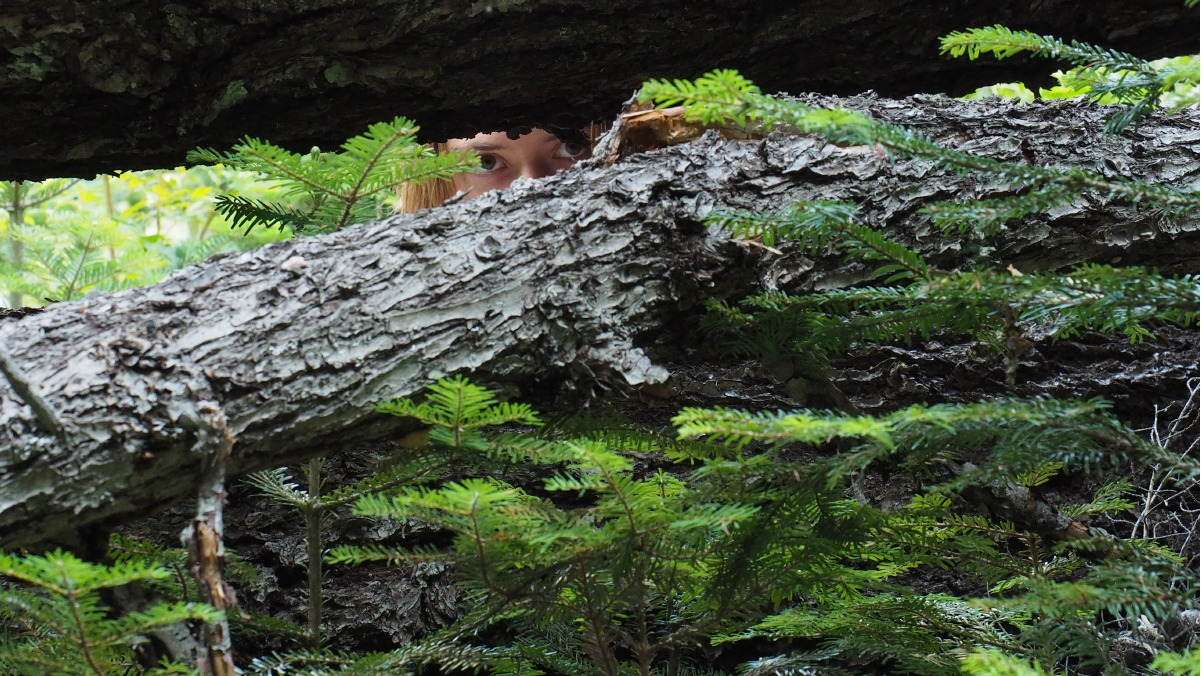A few years ago I stepped away from the world of startups, 10-15 phone calls a day, endless hours in front of a computer, and bone-deep burnout. I took a leap and decided to do a 9 month adult Immersion program at the Wilderness Awareness School in Duvall, WA. There, tucked in unassumingly at the end of the program, I encountered wilderness rites of passage for the first time.
It wasn’t a “sexy” encounter. It was gritty, strange and uncomfortable, though also woven through with moments of grace. Being immersed in the wild with little in the way of creature comforts for days and nights on end, I forgot about plans and schedules and schemes. I moved when I was cold, curled up in the moss when I was tired, ate when I was hungry, and paused to listen when I was scared. My body led the way, telling me what was next in the language of belly grumbles, shivers, tension and release.
I remember laying my head down on the ground one night after a long wander in the dark. As I was hovering at the edge of dreams, I heard a family of mice somewhere in the grass nearby quietly chattering and cooing to each other. Afraid to move lest I scare them away, I lay completely still listening for what felt like hours, mysteriously linked to those unseen beings by a tiny universe of sound.
In other moments my psyche felt like it was free-falling through empty space. Old stories and assumptions cracked and crumbled. Fear grabbed me in her jaws and gave me a good shake. I was swallowed, literally and figuratively, by the dark. But in allowing myself to be swallowed, in letting go of the struggle for control and comfort and head-level understanding, space appeared for something else.
That something isn’t easy to talk about. I might call it presence, or resonance, or the vulnerability of belonging. But it would be just as accurate to call it oak tree, owl, water and wind. It’s more a remembering than anything, a long-awaited return to one’s “place in the family of things”, as Mary Oliver so memorably put it.
A rite of passage in the truest sense isn’t a test of endurance or skill, it’s a test of one’s willingness to be pierced-by beauty, by grief, by fear, by how much we need the world and how much it needs us in return. It’s here that we discover something far more precious than individual ambition or recognition: a sense of kinship and devotion to life that arises not out of some heady notion of “doing good”, but one grounded in the dirt under our fingernails, the moss beneath our cheeks, and the call of the saw-whet owl at midnight.
This kind of remembrance isn’t a notch for your belt or a credential or a marketable skill. It likely won’t lead to riches and it certainly won’t lead to fame. It may not make you happier, and in fact it will probably connect you with grief you didn’t even know you had. It is a trust fall that offers no guarantees, no sureties, and no easy path.
But what it will do is crack the illusion that says you are meant to do it on your own (you’re not), that claims your personal scramble for comfort and control is the center of the universe (it isn’t), and that has you thinking you could ever be anything other than desperately needed (we all need you).
When these truths land, they come as both a great relief and a new call to devotion. Our first and last responsibility as humans is to the web of relationality and wholeness that contains and depends on us. Rites of passage are how we tend to the web and repair the fraying edges of culture. They are not “for” the individual so much as they are for the village. Because, it turns out, what the village needs most is people who can live in the paradox of being small drops in a big ocean while still doing the work life is calling them to do, knowing all the while they are irrevocably woven into to the whole.
Shadowcraft is my ode to rites of passage, an offering to the Wild God waiting to meet each of us in the forest. True thresholds are rare. In the span of a lifetime we might consider ourselves lucky to encounter a small handful. In a culture that rarely sees or acknowledges the moments of real import and transformation in our lives, Shadowcraft is an opportunity for something different-a chance to traverse threshold in, and with, and in service to, community and the more-than-human world.
Carlin Gettliffe is the lead instructor of the Shadowcraft Intensive, as well as the Sacred Dark weekend program.
